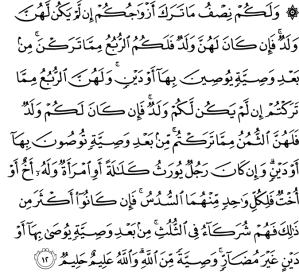Nikah Mut’a (temporary marriage) is it allowed by the Qur’an?
Q. What is the Quranic view on permission of Nikah Mut’a which is a temporary marriage entered for a fixed period of time for the purpose of physical pleasure and in which the partners do not inherit from each other?
A. The Qur’an does not permit that sexual urges should be fulfilled by temporary means. It says that people who do not posses the means to get married should remain chaste, as indicated by the following verse:
“And let those who do not find the means to marry keep chaste until Allah makes them free from want out of His grace.” (24:33)
Sex is a controllable urge as it is triggered off through our thoughts. This is the reason that believers are enjoined to remain celibate at certain times, e.g. while fasting and during the days of the Hajj or while in state of Ihraam (pilgrim garb). If sex were not controllable, then Allah, who created us, and who knows man’s nature would never demand of us to remain celibate at specific times. Unlike food which no matter how less you try to think about, will over come you as it is a vital need, but sex on the other hand is not like food that if we do not have it we may then acquire a physical deficiency.
People are ordered to keep themselves chaste until marriage. There is no other temporary means to fulfill this urge, says the Quran, while on the other hand we see that in case of food, when the situation is of a grievous nature and there is no access to Halaal (permissible) food, then the Quran says in such a situation, even Haraam (prohibited) food can be consumed:
“..But whoever is forced [by necessity], neither desiring [it] nor transgressing [its limit], then indeed, your Lord is Forgiving and Merciful.” 6:145
But in the case of sex, we do not find any recommendation for its gratification by a means other than Nikah (marriage), and those who cannot marry are ordered to keep chaste until their circumstances change. The purpose of sex according to Quran is not fulfillment of lust or satisfaction of desires only but it goes far beyond that. Like food, sex is not an end in itself, but it is a means to an end, i.e. procreation of the human species. Just like food is not consumed only for the sake of taste but acquisition of energy is the principle aim for its consumption, similarly sex is not an end in itself but is a means for another higher purpose. The Qur’an enjoins that believers who posses resources to support a family, should establish a permanent relationship of marriage, and assigns numerous rights related to such a bond. No passage of the Qur’an gives the slightest indication of the legitimacy of a temporary bond between couples entered into solely for physical pleasure.
“And how could you take it (back) while you have gone in unto each other, and they (your wives) have taken from you a firm and strong covenant?” 4:21
In above, the words Meethaqan ghaleeza lit. “strong covenant” rule out the notion of a marriage being a temporary bond but indicate it to be one entered into for a permanent basis. Moreover according to Qur’an, both husband and wife are to inherit from each other, thereby indicating that Nikah is a lifetime commitment and not a temporary affair:
“And for you is half of what your wives leave if they have no child. But if they have a child, for you is one fourth of what they leave, after any bequest they [may have] made or debt. And for the wives is one fourth if you leave no child. But if you leave a child, then for them is an eighth of what you leave, after any bequest you [may have] made or debt. And if a man or woman leaves neither ascendants nor descendants but has a brother or a sister, then for each one of them is a sixth. But if they are more than two, they share a third, after any bequest which was made or debt, as long as there is no detriment [caused]. [This is] an ordinance from Allah , and Allah is Knowing and Forbearing.” 4:12
As the Qur’an clearly commands those not having the means to get married to keep chaste, and has indicated that marriage is a strong bond between a husband and wife which results in the creation of rights of inheritance therefore the notion of a temporary marriage for a fixed period of time solely for sexual gratification in which partners do not inherit from each other is against Qur’anic guidelines. In view of this, Nikah Mut’a is not permissible for a believer in Qur’an.
WOULD YOU LIKE TO DISCUSS THE ABOVE OR ANY OTHER TOPIC WITH THE AUTHOR THROUGH LIVE CHAT? SCHEDULE A MEETING USING THIS FORM.



